Filter by
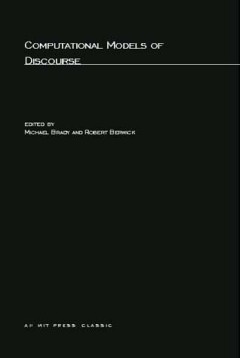
Computational Models of Discourse
AnnotationOCLC-licensed vendor bibliographic record.
- Edition
- -
- ISBN/ISSN
- 9780262255806
- Collation
- 1 online resource (xxiii, 403 pages) :illustrations.
- Series Title
- -
- Call Number
- -
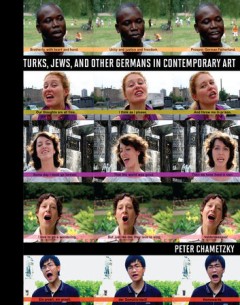
Turks, Jews, and other Germans in contemporary art
"The first book to showcase and analyze the diversity of Germany's contemporary cultural production, while arguing against its myth of homogeneity"--OCLC-licensed vendor bibliographic record.
- Edition
- -
- ISBN/ISSN
- 9780262365284
- Collation
- 1 online resource.
- Series Title
- -
- Call Number
- -
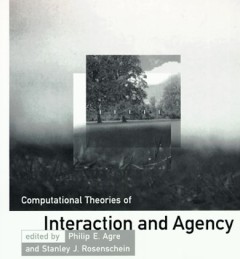
Computational Theories of Interaction and Agency
"Reprinted from Artificial intelligence, volume 72, numbers 1-2 (January 1995) and volume 73, numbers 1-2 (February 1995)"--Title page verso.Over time the field of artificial intelligence has developed an "agent perspective" expanding its focus from thought to action, from search spaces to physical environments, and from problem-solving to long-term activity. Originally published as a special d…
- Edition
- 1st MIT Press ed.
- ISBN/ISSN
- 9780262291040
- Collation
- 1 online resource (vi, 767 pages) :illustrations.
- Series Title
- -
- Call Number
- -
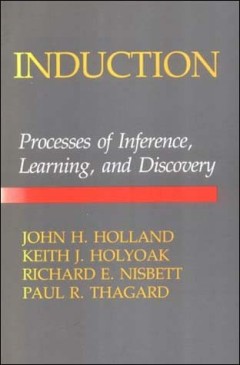
Induction : processes of inference, learning, and discovery
Includes appendix 12A: a walking tour of the computational ideas underlying classifier systems.Two psychologists, a computer scientist, and a philosopher have collaborated to present a framework for understanding processes of inductive reasoning and learning in organisms and machines. Theirs is the first major effort to bring the ideas of several disciplines to bear on a subject that has been a…
- Edition
- -
- ISBN/ISSN
- 0262081601
- Collation
- 1 online resource (xvi, 398 pages) : illustrations.
- Series Title
- -
- Call Number
- 100 HOL i
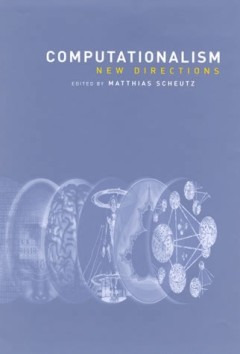
Computationalism: New Directions
A new computationalist view of the mind that takes into account real-world issues of embodiment, interaction, physical implementation, and semantics. Classical computationalism—-the view that mental states are computational states—-has come under attack in recent years. Critics claim that in defining computation solely in abstract, syntactic terms, computationalism neglects the real-time…
- Edition
- -
- ISBN/ISSN
- 9780262283106
- Collation
- -
- Series Title
- -
- Call Number
- 004 SCH c
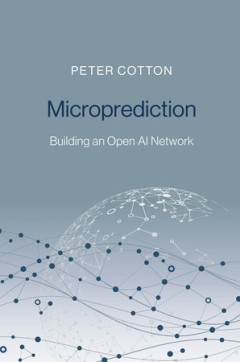
Microprediction :building an open ai network
"The artificial intelligence revolution is leaving behind small businesses and organizations who cannot afford to hire in-house teams of data scientists to build bespoke models. This book explores the nature of repeated quantitative tasks driving business optimization, from the perspective of economics, statistics, decision making under uncertainty, and privacy preserving computation"--OCLC-lic…
- Edition
- -
- ISBN/ISSN
- 9780262371346
- Collation
- 1 online resource
- Series Title
- -
- Call Number
- -

Writing and Unwriting (Media) Art History: Erkki Kurenniemi in 2048
A critical mapping of the multiplicities of Finnish artist and technology pioneer Erkki Kurenniemi -- composer of electronic music, experimental filmmaker, inventor, collector, futurologist.OCLC-licensed vendor bibliographic record.
- Edition
- -
- ISBN/ISSN
- 9780262331111
- Collation
- 1 online resource (xxviii, 340 pages) :illustrations.
- Series Title
- -
- Call Number
- -
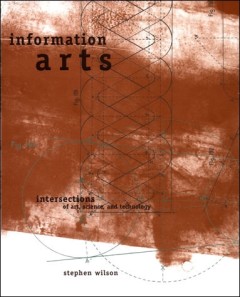
Information arts : intersections of art, science, and technology
An introduction to the work and ideas of artists who use--and even influence--science and technology.A new breed of contemporary artist engages science and technology--not just to adopt the vocabulary and gizmos, but to explore and comment on the content, agendas, and possibilities. Indeed, proposes Stephen Wilson, the role of the artist is not only to interpret and to spread scientific knowled…
- Edition
- -
- ISBN/ISSN
- 9780262286336
- Collation
- 1 online resource (xxiv, 945 pages) : illustrations.
- Series Title
- -
- Call Number
- 700 WIL i
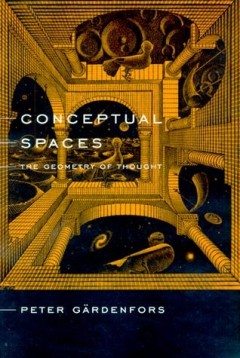
Conceptual Spaces: The Geometry of Thought
Within cognitive science, two approaches currently dominate the problem of modeling representations. The symbolic approach views cognition as computation involving symbolic manipulation. Connectionism, a special case of associationism, models associations using artificial neuron networks. Peter Gärdenfors offers his theory of conceptual representations as a bridge between the symbolic and conn…
- Edition
- -
- ISBN/ISSN
- 9780262273558
- Collation
- 1 online resource (x, 307 pages) :illustrations
- Series Title
- -
- Call Number
- -
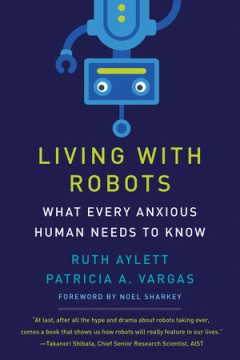
The robots are coming :what every anxious human needs to know
The truth about robots: two experts look beyond the hype, offering a lively and accessible guide to what robots can (and can't) do. There's a lot of hype about robots; some of it is scary and some of it utopian. In this accessible book, two robotics experts reveal the truth about what robots can and can't do, how they work, and what we can reasonably expect their future capabilities to be. It w…
- Edition
- -
- ISBN/ISSN
- 9780262365482
- Collation
- 1 online resource (312 pages)
- Series Title
- -
- Call Number
- -
 Computer Science, Information & General Works
Computer Science, Information & General Works  Philosophy & Psychology
Philosophy & Psychology  Religion
Religion  Social Sciences
Social Sciences  Language
Language  Pure Science
Pure Science  Applied Sciences
Applied Sciences  Art & Recreation
Art & Recreation  Literature
Literature  History & Geography
History & Geography